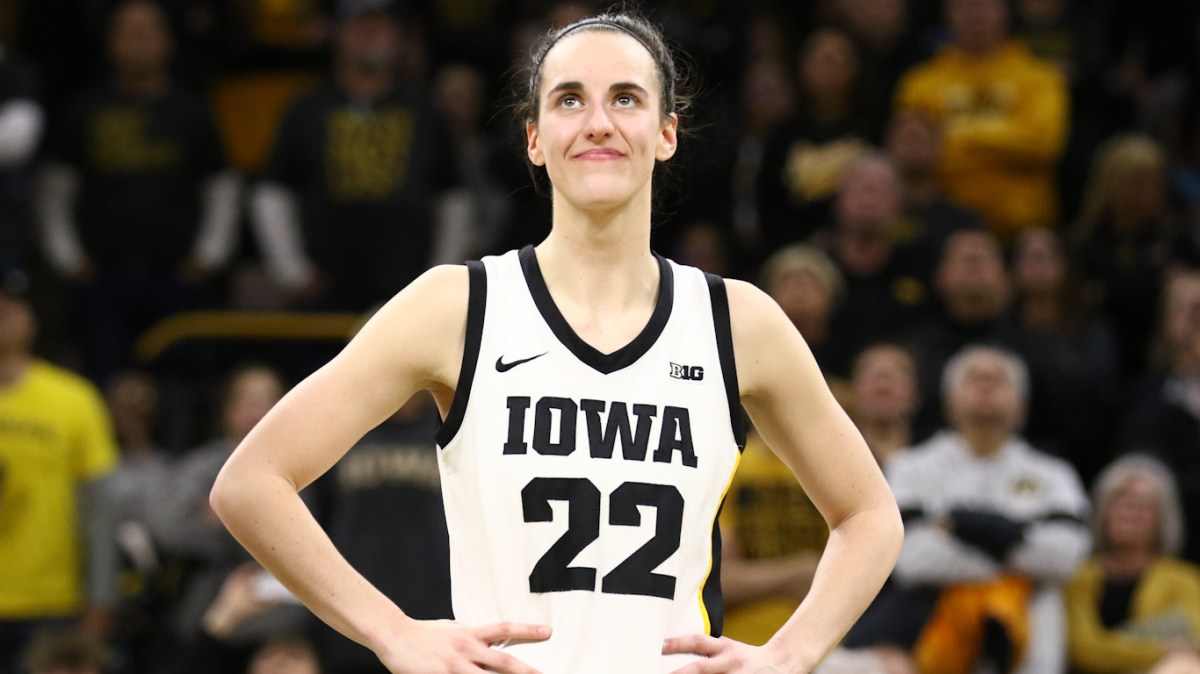Even those unfamiliar with collegiate-level basketball have probably heard of Caitlin Clark. The 22-year-old recently went viral on TikTok for shaming a throng of dude-bros who tried to harass her during a game, partnered with midwestern grocery store Hyvee, and has been smashing records left and right since she was in the 6th grade.
All that success has convinced some brain-rotted idiots that the prodigy must have a trick up her sleeve. The current attempt to smear or demoralize Clark, or maybe for insecure men to rationalize the success of a woman, is that she must have been “born a man” to dunk on her haters this hard.
Is Caitlin Clark Transgender?
No. No you absolute dinguses, Caitlin Clark was AFAB, AKA “born a woman.”
The Iowa native is just really, really good at basketball. Her only “trick” is her natural athleticism, and, more importantly, the fact that she has been busting her basketball-playing buns since she was 5 years old.
Without any local teams for girls, Clark kicked off her love affair with basketball by playing in a boy’s recreational league. It wasn’t just a love for playing the game that guided Clark to become the powerhouse she is on the court; even at 12-years-old, her parents knew the only way to get a message across was to cut her off from basketball. While many youths were stripped of laptop and video game privileges, Clark was forbidden to watch basketball.
Her dedication pushed her to become the first player in Division I history to record back-to-back stat lines of 30+ points, 10+ rebounds, and 10+ assists. In 2022, she became the fastest player in Big Ten history to hit 1000 points – a feat she accomplished in only 40 games. In 2023 she landed both the prestigious NCAA Player of the Year and 1st All-American awards.
This attempt to paint Clark as transgender just to discount her accolades is just another pitiful attempt to cow her, just like a passel of mindless teenage boys chanting “overrated” at her during a live game. Accusing Clark of being trans simply because she is phenomenal at her favorite pastime is just another form of gender policing.
The assertion that Clark — or any high-performing female athlete — is transgender or intersex is offensive. Worse, it’s dangerous for women’s sports. The tactic of questioning an athlete’s sex to discredit her accomplishments has been used since the 1930s. Until the late ‘90s, the International Olympic Committee required chromosomal testing of all female athletes to “ensure fair competition.” These “femininity certificates” involved invasive visual inspection and physical exams, and were fueled by anxieties around the “unfemininity” of the athletes.
Even with the dissolution of sex verification in sports, female athletes are still harangued for having unfeminine appearances. South African Olympian Caster Semenya, who was assigned female at birth, lost her chance to compete in the 2020 Olympics after the IAAF ruled that her testosterone levels were too high, and labeled her as one of a number of “biologically male athletes with female gender identity.”
Now sporting authorities center their harassment on testosterone levels, a practice that only afflicts women in sports, and not male athletes. Per NBC News, “High-performing men have never been viewed as suspicious, regardless of their performances.” Likewise, high performing female athletes are much more likely to be accused of being lesbians, another attack on perceived otherness and – and yet another trope that Clark has been subjected to.
There is a wider conversation to be had about transgender women in sports and the invasive tests and ever-increasing rules that have been enacted to stifle their athletic contributions. But attempting to use the accusation of being transgender to smear cis female athletes by attacking them for being “unfeminine” and insisting that “overperforming women” are trans demoralizes both sides of the conversation and sows divisiveness.











Published: Apr 8, 2024 01:24 pm